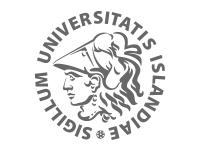Partners
University of Iceland (UoI)

The University of Iceland is the main university in Iceland (Population 330,000) and is rated in the top 200 universities in the world. The University has 14,000 students, of which 4,000 are graduate students. University of Iceland has 1,260 academic staff of which 35% are female. In 2013, the University of Iceland awarded 52 PhDs, of which 5 were Joint PhDs. Subjects covered include social sciences, humanities, medicine, natural sciences, engineering and teacher education. The department of Industrial Engineering is a part of the school of engineering and natural sciences at the University of Iceland (Háskóli Íslands). The Institute have specialists in systems analysis, systems dynamics modelling and process-oriented modelling for complex systems. On the other hand, the Faculty of Earth Sciences have specialists in geology, geophysics and earth sciences, including renewable energies and sustainability science.
Prof Harald Sverdrup has been the leader in the development of the last version of the renowned World model (World6). As a consequence of the UoI experience in the fields related to technological aspects linked to system dynamic materials and energy modelling, UoI will deal with the energy and material modelling (WP7), data (WP2) and functionalities from other models (WP3). At the same time, certain aspects of the communication, dissemination and exploitation strategy will be associated with the UoI experience in Sustainability Sciences, and the network of contacts and organizations to which the colleagues of UoI have developed in the last decades.



